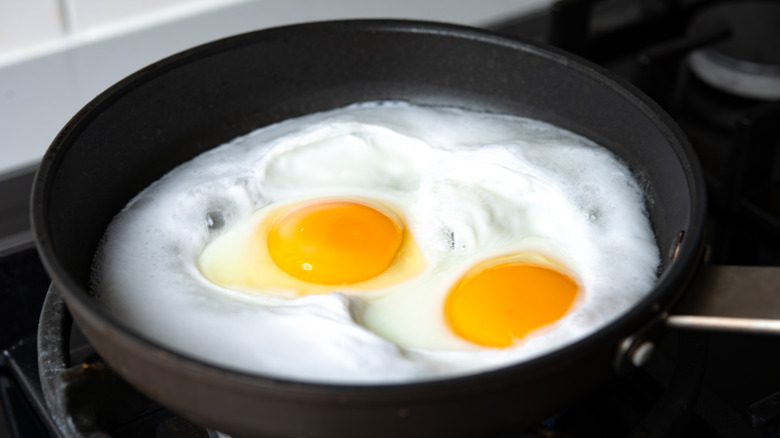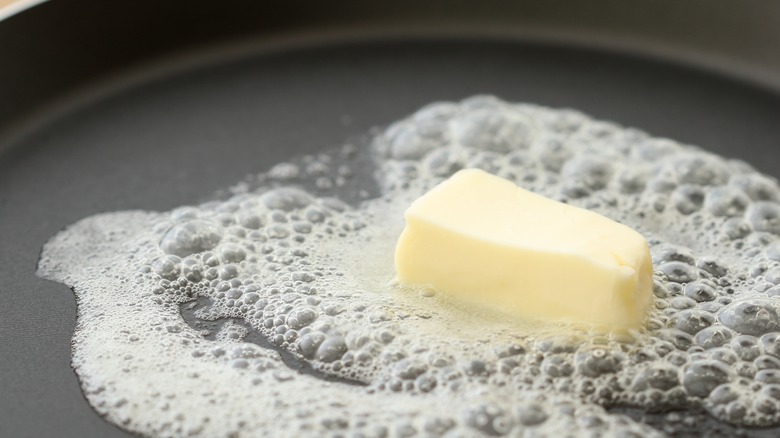Why It's A Mistake To Make Fried Eggs With Water
The idea of fat-free fried eggs is quite fascinating. It would be amazing if you could enjoy your favorite breakfast for a fraction of the calories. You'd also avoid the oil splatters and rubbery whites that come with cooking in olive oil. Thus, some are sold on the notion of frying eggs in water. Unlike the traditional approach of using oil or butter, frying eggs in water eliminates the extra fat yet purportedly gives delicious results. So we gave it a go ourselves. We started with high hopes but after experimenting with 10 methods to cook fried eggs, including one with water, another with bacon fat, and even one with chili crisp, we concluded with a different opinion.
The method with water didn't turn out as great as it sounded on paper and was our least favorite cooking method for fried eggs. The eggs came out soggy and watered down so they had a weak flavor, while the egg white didn't quite firm up in consistency. Instead, it tore away from the yolk as the white frame gave in to water bubbles. Overall, the flavor and texture of eggs fried with water fell short. We further concluded that cooking with water is a mistake since the intrusive bubbling won't even let you get in a decent flip to jell up the egg yolk.
Why we're sticking to butter for fried eggs
Butter is a classic when it comes to fried eggs, and an extremely rewarding one. It's the king of delightful fatty flavors, and the key to Gordon Ramsay's trick for perfect fried eggs. In our experiment cooking fried eggs, the positives began before even tasting the final product, as the aromas captured the senses and prepped the appetites of our Tasting Table testers.
When eggs are cooked in a frying pan with butter, they take on a rich, buttery taste that fills them with flavor. This is unlike water, which lacks fat and turned out a near-bland fried egg in our experiment. Butter also lends a soft texture to fried eggs since it contains a bit of water, giving you a more delicate egg. Yet, the lighter texture of eggs fried in butter is not disrupted by any bubbling that would cause the yolk to separate from the yolk while cooking.
The egg we fried in butter came out rich and flavorful, and maybe the salt in the butter had something to do with that. Still, there were other things to appreciate, such as the aroma and cooking method, which included the butter melting effortlessly to coat the pan. So while the idea of using water piqued our curiosity, we'd much rather stick to good old butter-fried eggs.

